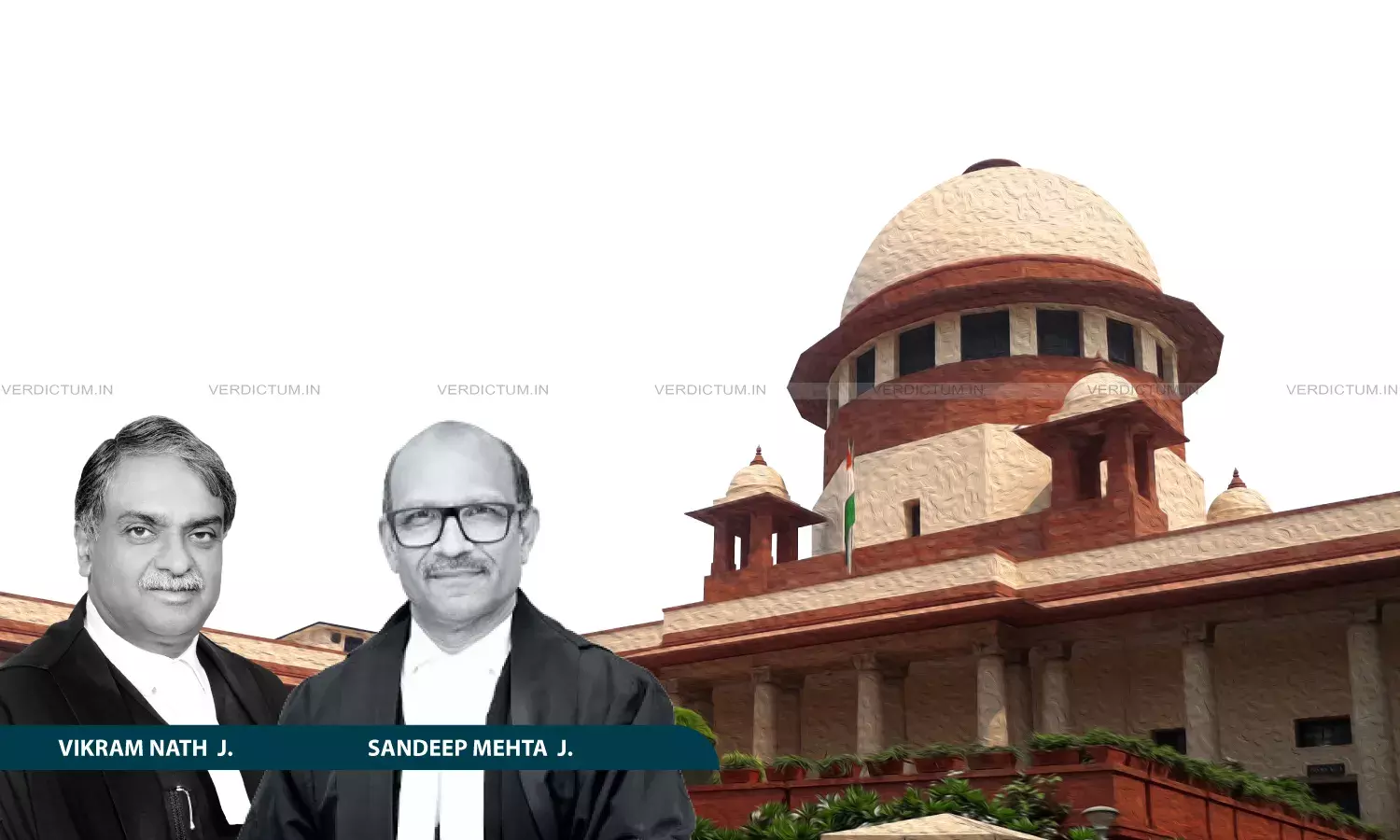Mere Identification Of Deponent In An Affidavit Does Not Make Advocate Responsible For Its Contents: Supreme Court
The Apex Court clarified that merely attesting or identifying the deponent in an affidavit does not render the advocate privy to the statements made therein.

Justice Vikram Nath, Justice Sandeep Mehta, Supreme Court
The Supreme Court has ruled that the mere act of identifying a deponent in an affidavit does not render the advocate responsible for the contents of the affidavit.
The Court was hearing connected petitions arising out of disciplinary proceedings initiated by the Bar Council of Maharashtra and Goa against an advocate for purportedly attesting the affidavit filed in a civil suit.
A Bench comprising Justice Vikram Nath and Justice Sandeep Mehta observed, “An advocate, by mere attestation of the affidavit, does not become a privy to the contents of the affidavit.”
Senior Advocate S.R. Singh represented the appellant, while Senior Advocate Chander Uday Singh appeared on behalf of the respondents.
Background
The complainant, a litigant in a civil dispute with a government educational institution, alleged that the respondent-advocate, by identifying the deponent of an affidavit in chamber summons had assumed responsibility for its contents, which later turned out to contain false statements. The Bar Council directed registration of the complaint and referred it to the Disciplinary Committee.
The respondent-advocate challenged this before the BombayHigh Court, which quashed the disciplinary proceedings, holding that identification of a deponent did not amount to responsibility for the affidavit’s contents.
Court’s Observations
The Supreme Court, while holding the complaint “not only bereft of substance” but also “malicious and spiteful insinuations directed against the advocate”, upheld the Bombay High Court’s reasoning, which in its order had observed that “…the mere act of identifying the deponent in an affidavit filed with the chamber summons would not make the advocate responsible for the contents of the affidavit.”
The Apex Court also criticised the State Bar Council’s actions, observing that “…the steps taken and order passed by the BCMG in directing registration of the complaint and in referring the same to the DC for undertaking the inquiry were illegal on the face of the record, bordering on perversity.”
The Bench concluded that the respondent-advocate had been subjected to harassment and malicious prosecution at the behest of an opponent litigant.
Conclusion
The Supreme Court accordingly dismissed the special leave petitions as devoid of merit and imposed costs of ₹50,000 each on the complainant and the Bar Council of Maharashtra and Goa, to be paid to the respondent-advocate.
Cause Title: Bar Council of Goa and Maharashtra Vs Rajiv Nareshchandra Narula & Ors (Neutral Citation: 2025 INSC 1147)
Appearances
Petitioners: Senior Advocate S.R. Singh, with Advocates Arvind S. Avhad, AOR, Rajat Kapoor, Sushil Sonkar, Nitin Jain, Yash Tiwari, Adv. (VC) Praveen Kumar Jha, AOR
Respondents: Senior Advocates Chander Uday Singh & Prasenjit Keswani, with Advocates Rohan Thawani, Pooja Dhar, AOR, Aakriti Vikas, Upmanyu Tewari, AOR


